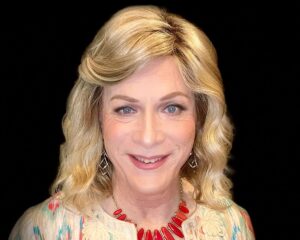
By Blaire Ostler
I am heartbroken to learn that the “Radical Orthodoxy” manifesto co-authored by Nathaniel Givens, Jeffrey Thayne, and Jonathan Max Wilson is intended to be anti-queer. I’m heartbroken. I’m utterly heartbroken. The Tribune article clarifying the author’s intensions on the “Radical Orthodoxy” manifesto had me in tears.
I pray the Spirit will be with me as I share my concerns.
Upon reading the “Radical Orthodoxy” manifesto, I had concerns about one sentence in particular.
Radical orthodoxy includes “. . .meticulously heeding and unabashedly embracing the counsel and teachings of prophets and apostles regarding chastity and morality [. . .] —even when doing so runs contrary to popular, worldly views.”
Though I had my suspicions, I didn’t want to read beyond the text. For that reason, I withheld from judgment or commentary about specific in the manifesto. My gut told me this had anti-queer undertones, and sadly, the Tribune article confirms my fears. The document is intended to be anti-queer according to the co-author, Jeffrey Thayne.
The Tribune article states, “These ‘radical orthodox’ believers want to be defined ‘by what we are for, not what we are against,’ Givens says.”
Yet, co-author Thayne openly states signatories of the manifesto are against celebrating queer children, my child, or petitioning to the Lord and his servants for further revelation concerning queer temple sealings.
In Thayne’s words, “For example, if someone [. . .] celebrates gender transitions as compatible with the gospel, or promotes the expectation that same-sex couples will someday be sealed in the temple, they are no longer operating within the paradigm laid out by radical orthodoxy.”
Yet, co-author Givens states, “The key is not to pick a fight with anybody, but to find new things to talk about, and to emphasize positivity.”
It feels disingenuous to state that you are not trying to “pick a fight” and “emphasizing positivity” when “radical orthodoxy” means not celebrating our queer children, or seeking further revelation concerning their place in the temple.
It feels like the author is intentionally trying to pick a fight when he says, “Radical orthodoxy [. . .] requires a willingness to speak out in defense of the divine truths in these documents, when the occasion calls for it.”
Quite explicitly the author’s “for position” is against my child. It is against me. Against queer Latter-day Saints. Against the queer members of the body of Christ.
Adam Miller states in the article that the manifesto is “pretty banal.”
Nathaniel Givens, co-author of the documents asked on his Facebook page, “Why are banalities so contentious?”
To answer Nathaniel’s question, the rejection of queer Latter-day Saints is not banal, nor is it Christlike. Any document rejecting God’s queer children is not banal and promotes unnecessary contention.
I’m so sad. I’m so incredibly sad. People I care about and respect have signed this manifesto, including Fiona and Terryl Givens. I’m just so sad. You’d think after so many forms of rejection over the years I’d be used to it—that it wouldn’t hurt anymore, that I would have developed an immunity—but it hurts every. single. Time.
Bio: Blaire Ostler is a philosopher who is specialized in queer studies, and is a leading voice at the intersection of queer, Mormon, and transhumanist thought. She is an author publishing her first book, “Queer Mormon Theology: An Introduction.” She is a board member of the Mormon Transhumanist Association, the Christian Transhumanist Association, and Sunstone.






12 Responses
Thank you for this, Blaire. There is nothing “radical” about that article, it is just regular old queerphobia and those of us who are queer cannot work this out with an excess of “positivity.” I hope that one day some of these folks encounter the sacred queerness of God and are able to see that Jesus is not on the side of those who exclude marginalized folks.
Yes, 100%.
Who are they to tell people what it’s appropriate to “hope” for? Hoping and working for greater love and inclusion seems just about the most radical thing we can do. I won’t be buying any more Givens books, but already leaned that way after his bizarro abortion rant.
I really don’t want to be calling other women out for not being “feminist” enough, but when Valerie Hudson claims her anti-choice, anti-LGBT, and anti-ERA positions come from an “ardently feminist position” (in the Trib article) I have to wonder what on earth kind of definition of feminism she is using.
Honestly to me this just looks like a bunch of pompous, self-righteous navel-gazing. But why not do that without expressly throwing LGBTQ folks under the bus? So sad.
I’m not queer, but thinking of my queer loved ones as I read the pain in your voice hurts me too. I’m so sorry that this toxic negative rejection of the lives of our families and dear ones is represented as positivity. Gaslighting is evil because of the lie.
Interesting use of the term ‘banal.’ It retook me down a rabbit hole to revisit the report of Hannah Arendt, the Jewish writer who escaped the holocaust and lived to cover the trial of Adolf Eichmann. It was published under the title “Eichmann in Jerusalem: A Report on the Banality of Evil” and her insights on the subject have become well-known and much-discussed philosophy. It was sobering to read what she wrote that applies right now as if her ink was fresh. It’s worth studying in the context of ordinary good folks unraveling into building evil.
I’m sorrowing with you.
I am so sorry for your broken heart after reading this manifesto. I read the article and then the manifesto. It has upset me and made me angry. I know 3 people who’ve signed this. I’m shaking my head in disbelief.
One thing I do know is that this is not the Gospel of Jesus Christ. That is a gospel of LOVE and hope, forgiveness, charity, faith, sacrifice and joy. God loves all His children. He does not make a special club for those who feel they can speak for Him about what is expected by Him.
This “club” has no authority. It is a big nothing-burger. But it builds a fence and locks it with a gate and says that only those who keep these rules may enter. Sign the document. You may enter and look down on all those who didn’t qualify.
God made us as we are. He wants all of us to come back to him. Jesus died for you and also for my child. This manifesto is a silly document not worthy to light my fireplace with.
I’ve read some of your things. I admire you. Keep going, because you help many. Love to you.
Thank you for this, Blaire. You have some great insights. I am so glad there are people who can put into words many of the things that I have been feeling, but am not able to express so eloquently.
In addition, I think the fact that this group of people felt compelled to write this manifesto in the first place is a good indication that it’s not really as “banal” as they would like to believe. And I think they realize that on some level.
with you in this Blaire “the rejection of queer Latter-day Saints is not banal, nor is it Christlike” , this document is spiritually abusive and I am so sorry
I can’t believe this keeps happening. I share your heartbreak, and I appreciate your words on why this is so harmful.
Thank you for this! There’s a great discussion about the “manifesto” on the Beyond the Block podcast called “Blandifesto” if anyone is interested.
[…] The Tribune story. View more responses at By Common Consent, Exponent II and Wheat & […]
I will admit I haven’t read the Manifesto because I just didn’t want to wade in to what promised to be something I didn’t want to be part of. But this does make me sad. Also, I’m not in favor of LGBTQ rights because I want to be “popular and worldly.” If fitting in were my number one priority I think sipping coffee would be a more logical place for me to start, since that comes up much more often than “how do you feel about total strangers having sex in privacy?” I care about LGBTQ rights because my moral principles taught to me by the gospel tell me that God loves all of us equally and wants the same joy for us all.
When Givens says – “The key is not to pick a fight with anybody, but to find new things to talk about, and to emphasize positivity.” it felt to me like –
“ok folk let’s look away from these gaping huge issues that aren’t going away but we really don’t want to think about that because it doesn’t affect us personally.”
It’s heartbreaking to be constantly faced with these types of attitudes in the church and I don’t know if my shelf can break any further.